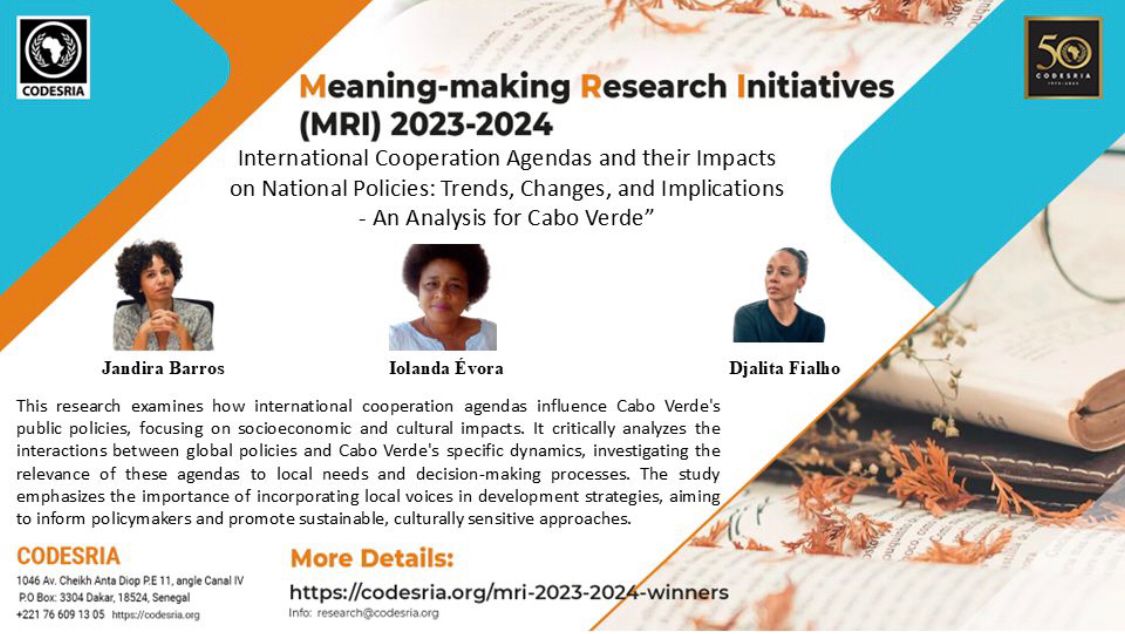CEsA researcher is part of a project on the impact of international cooperation agendas on public policies in Cape Verde, awarded with funding from CODESRIA

Iolanda Évora (ISEG-ULisboa, Portugal), a PhD in social psychology and researcher at CEsA, will be part of the project “International Cooperation Agendas and their Impacts on National Policies:Trends, Changes, and Implications – An Analysis for Cabo Verde”, coordinated by researcher Djalita Fialho (Pedro Pires Institute for Leadership, Cape Verde) and in collaboration with researcher Jandira Barros (Social3, Cape Verde).
This research project on the impact of international cooperation agendas on public policies in Cape Verde was selected in the 2023/2024 Meaning-making Research Initiatives (MRI) competition to be awarded funding from CODESRIA – Council for the Development of Social Science Research in Africa (see the list of winning projects at this link). According to the letter sent by the Council, the research proposal was chosen from over 400 applications for its quality, as well as for its “potential to significantly contribute to and deepen our knowledge of African realities”.
Project summary:
This research analyzes the impact of international cooperation agendas on Cabo Verde’s public policies, highlighting socioeconomic and cultural aspects. Using an approach that combines public policy analysis with a critical reflection on hegemonic development approaches in Africa, it explores the interactions between global policies and the specific dynamics of Cabo Verde. The study investigates the effects of these international agendas on social dynamics and national political decision-making processes. The central research questions relate to how these agendas are adopted in Cabo Verde and their relevance to local needs, crises, and endogenous perspectives on social well-being. The methodology involves analyzing cooperation documents, government policies, NGO plans, and interviews with civil society members. This comprehensive approach aims to uncover the challenges Cabo Verde faces in international cooperation and emphasizes the importance of local voices in shaping development trajectories. The practical importance of the research lies in informing policymakers and international agencies about the need for inclusive and contextually relevant development approaches. With a budget of USD 25,000 over 16 months, the study promotes sustainable and culturally sensitive development strategies aligned with local aspirations.
Author: CEsA Communication (comunicacao@cesa.iseg.ulisboa.pt)
Images: CEsA/Reproduction





